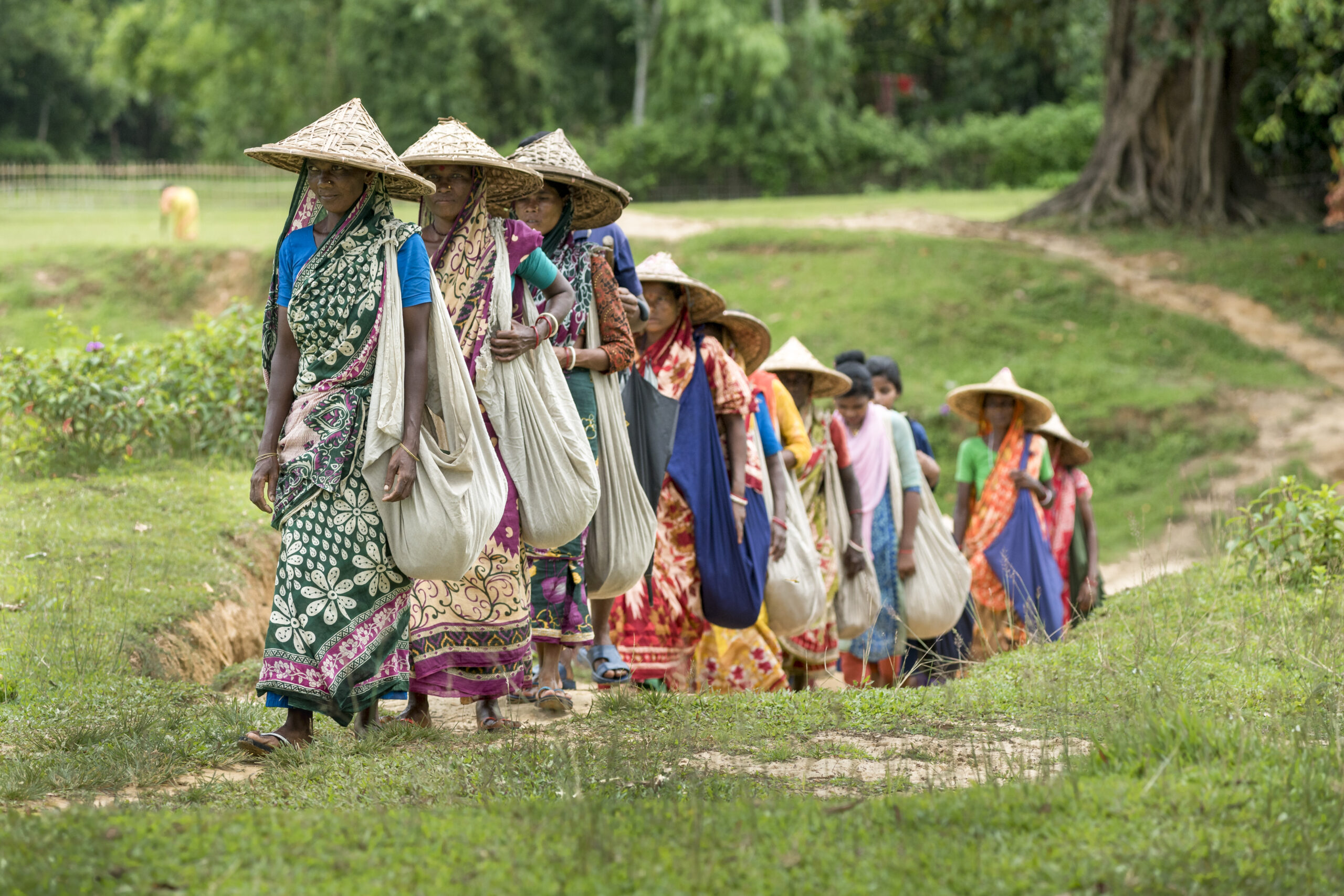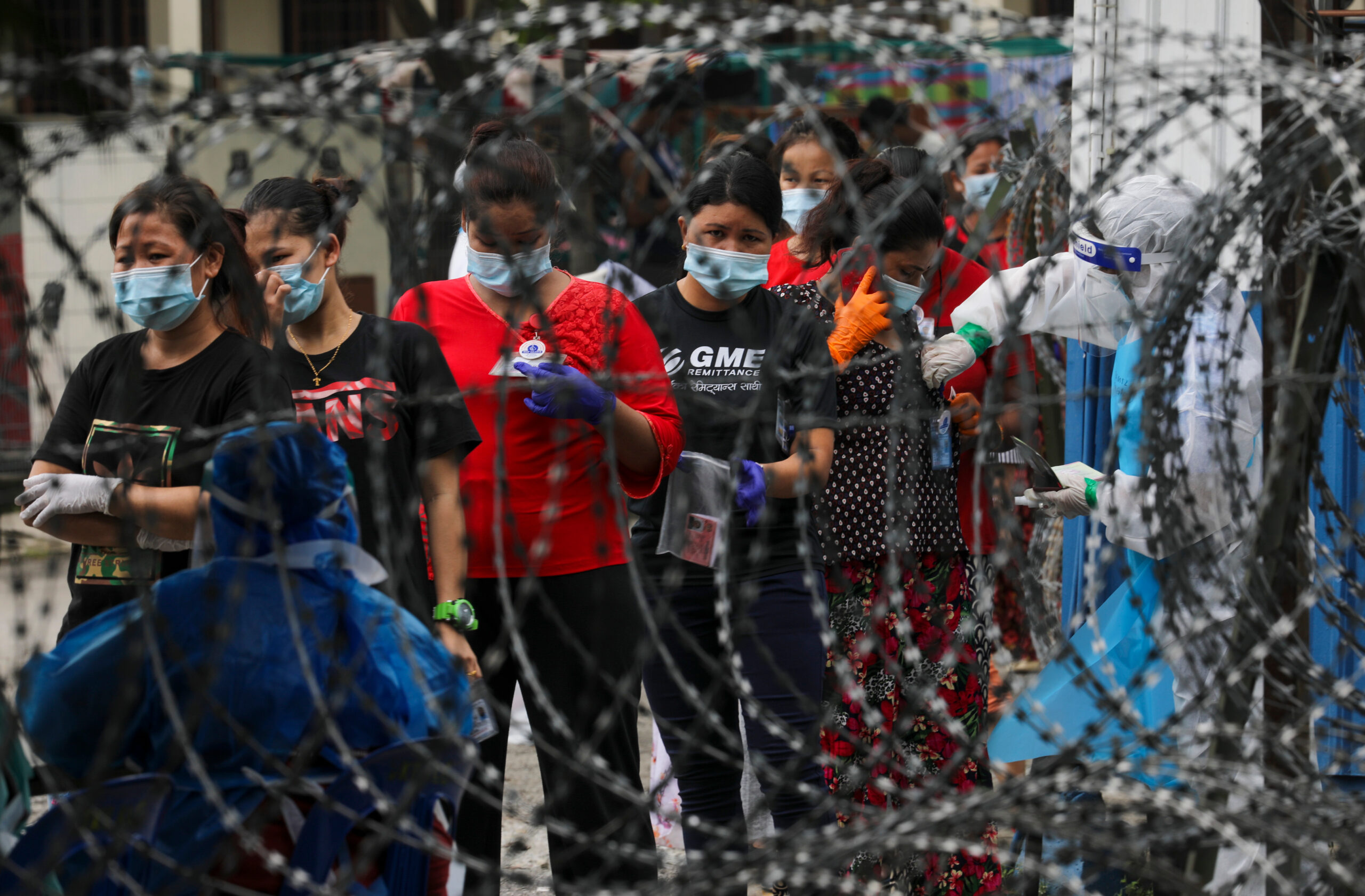Publications
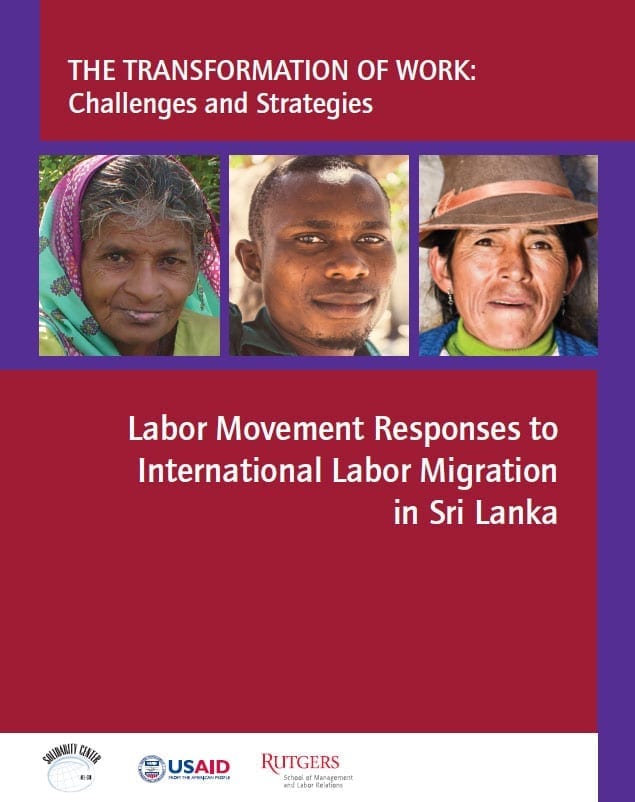
Labor Movement Responses to International Labor Migration in Sri Lanka
This report looks at the political and economic context within which Sri Lankan unions have attempted to respond to migrant workers, unions’ role in the key governance and policy mechanisms that pertain to labor migration, and the way the Sri Lankan labor movement responded to international migrant workers.
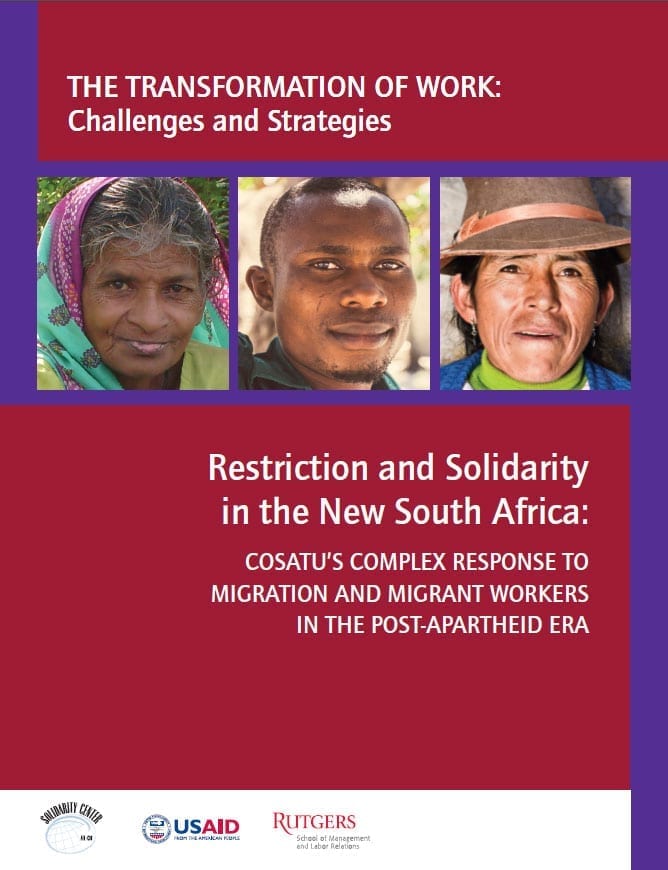
Restriction and Solidarity in the New South Africa
This report look at South African labor’s complicated engagement with migrant workers by examining the migration policy debate, labor’s response to the xenophobic attacks of 2008 and two organizing campaign in the agricultural sector. It sheds light on how labor migration and hostility toward immigrants are intertwined with the state’s embrace of neo-liberal economic policy and with growing labor precariousness.
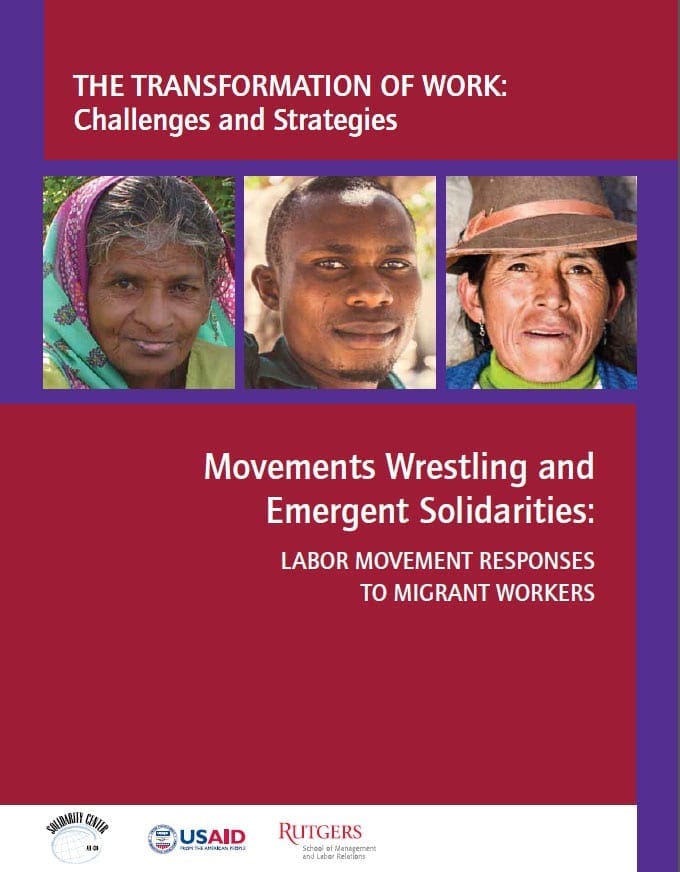
Movements Wrestling and Emergent Solidarities: Labor Movement Responses to Migrant Workers
This report synthesizes a two-year project. Part one consisted of desk and case study research conducted by telephone in Jordan and the Dominican Republic looking into cases where unions had made significant changes in their approach to migrant worker organizing. Part two involved field studies in South Africa and Sri Lanka and provides analysis of strategies and results.
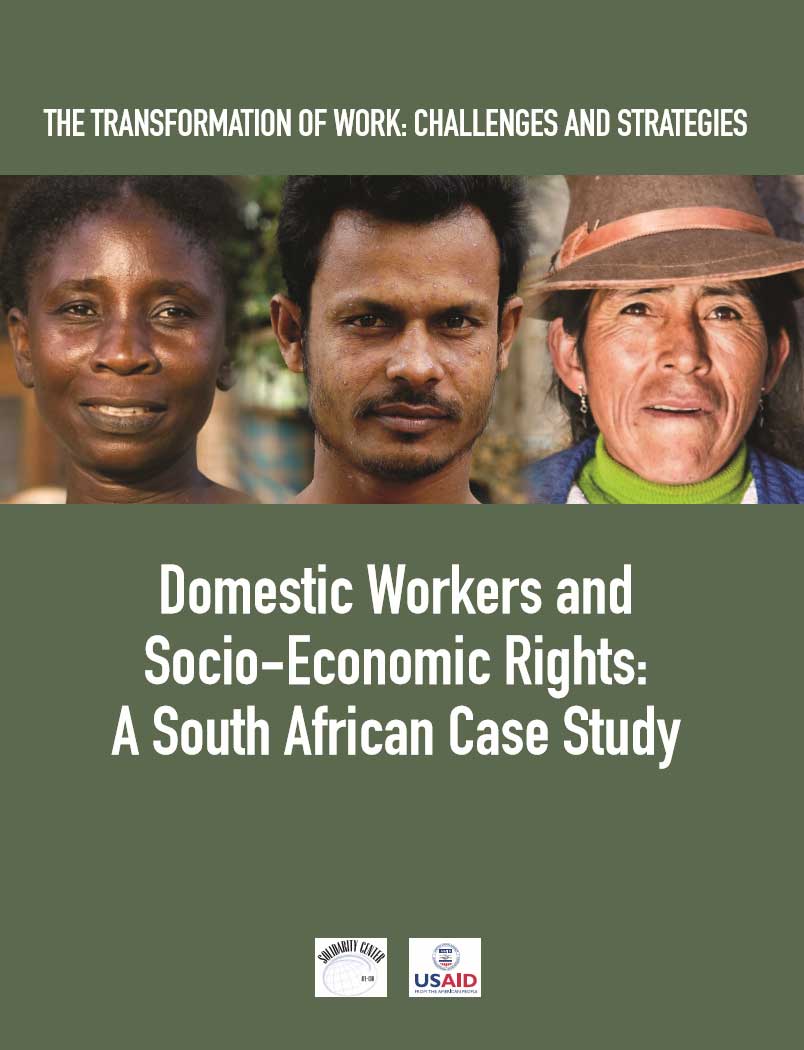
Domestic Workers and Socioeconomic Rights: A South African Case Study (2013)
This report explores the challenges of empowering domestic workers in South Africa through the traditional trade union focus on worker rights, democratic voice and collective action. This Solidarity Center report is part of a multiyear research project, funded by the U.S. Agency for International Development, to study the informal economy, migration, gender and rule of law together with research partners Rutgers and WIEGO.
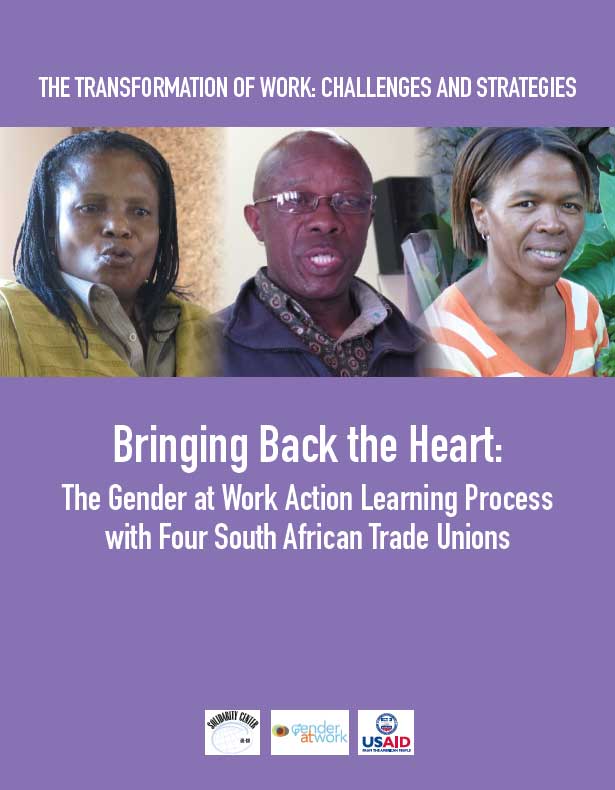
Bringing Back the Heart: The Gender at Work Action Learning Process with Four South African Unions (2013)
Four South African unions took part in a unique process with the South Africa Gender Action Learning Program and Labour Research Service to challenge male–dominated, hierarchical cultures. This report describes the step-by-step journey that led to more women joining unions and taking on leadership positions—and ultimately becoming inspired to carry on the hard work of ensuring gender equality remains an integral part of their unions.
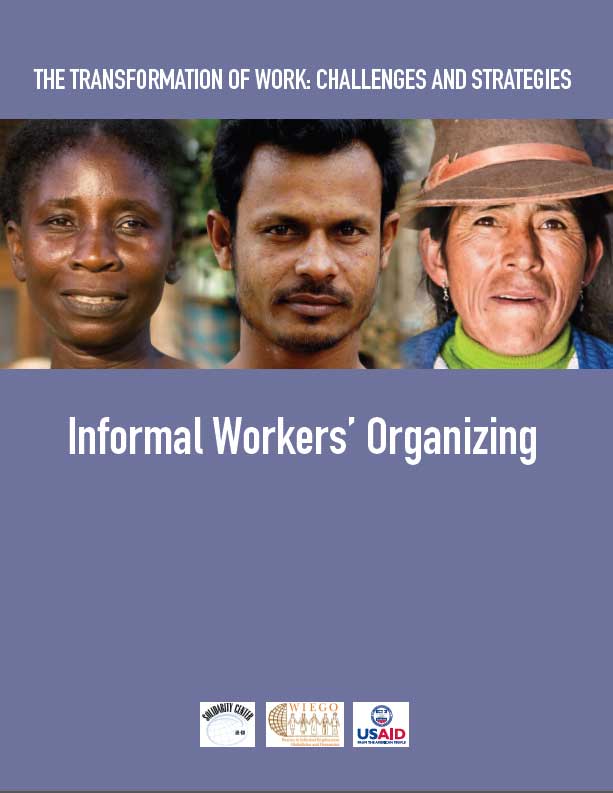
Informal Workers’ Organizing (WIEGO, 2013)
In overviewing self-organizing among such informal economy workers as waste pickers, domestic workers and construction workers, this report finds the lines are increasingly blurred between jobs in the formal and informal economies. This Solidarity Center report is part of a multiyear research project, funded by the U.S. Agency for International Development, to study the informal economy, migration, gender and rule of law together with research partners Rutgers and WIEGO.
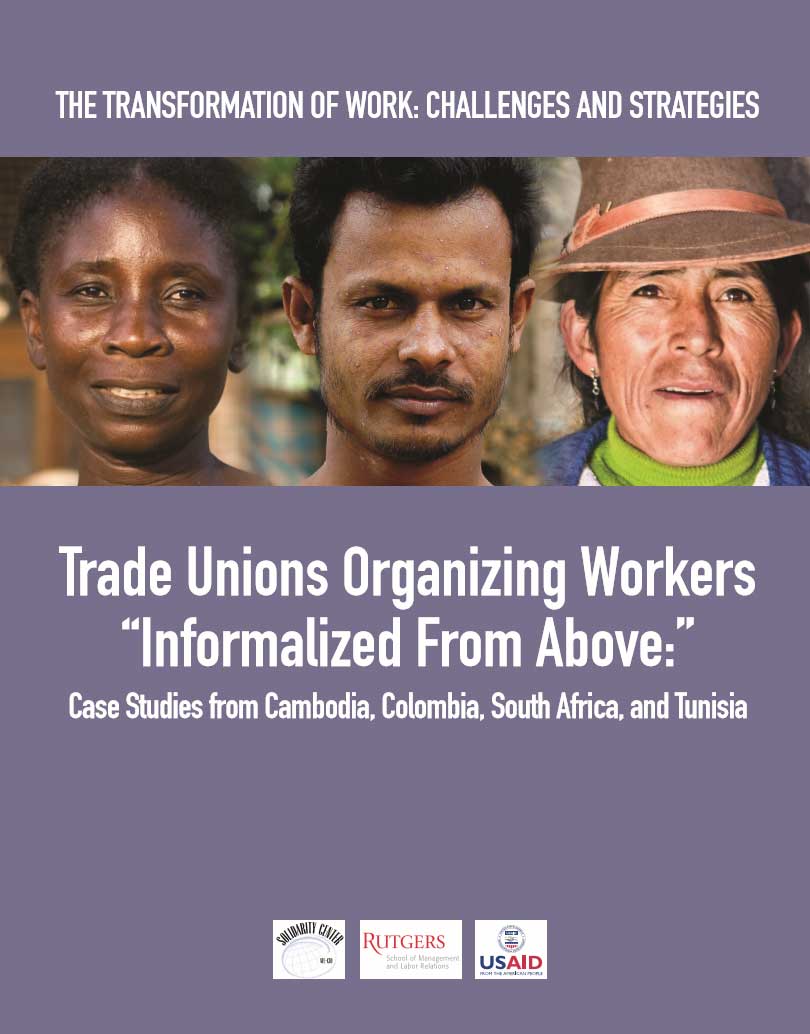
Trade Unions Organizing Workers “Informalized from Above”: Case Studies from Cambodia, Colombia, South Africa and Tunisia (Rutgers, 2013)
Four case studies examine successful union organizing among workers whose jobs have been privatized, outsourced or contracted out. This Solidarity Center report is part of a multiyear research project, funded by the U.S. Agency forInternational Development, to study the informal economy, migration, gender and rule of law together with research partners Rutgers and WIEGO.
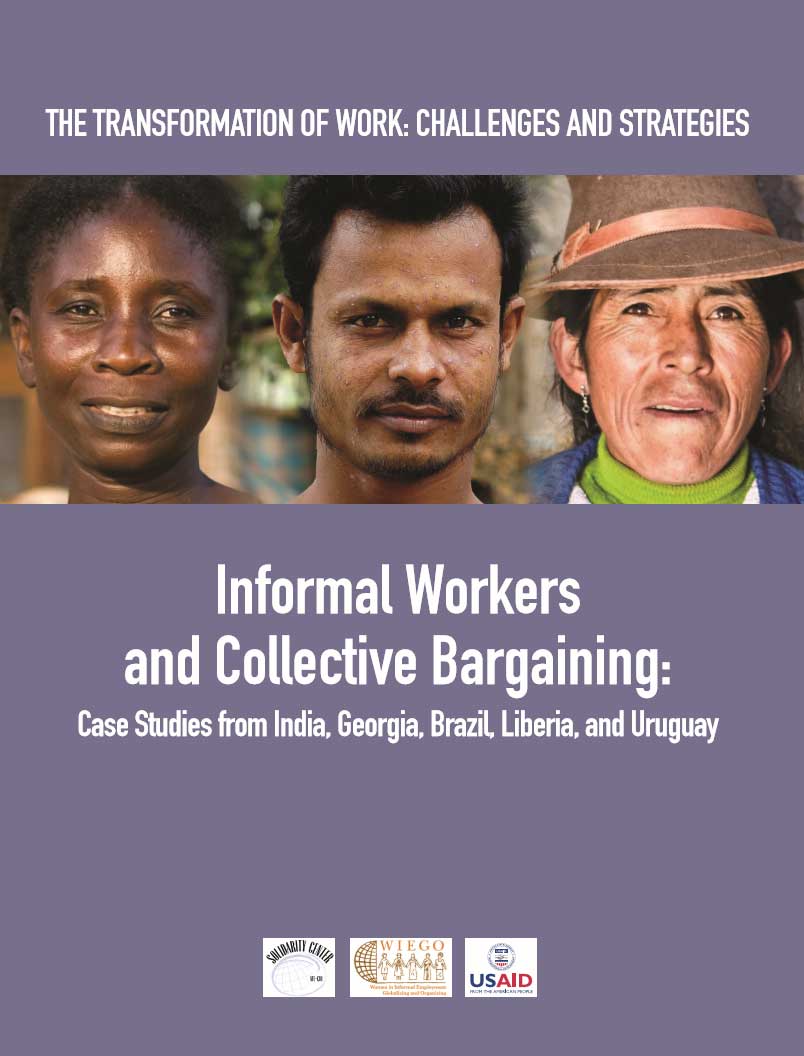
Informal Workers and Collective Bargaining: Case Studies from India, Georgia, Brazil, Liberia and Uruguay (WIEGO, 2013)
This report details a set of case studies on collective bargaining by informal workers in four different countries: Waste pickers in Minas Gerais state in Brazil, beedi workers in India, Georgia minibus taxi workers and street vendors in Monrovia, Liberia. The study also references the efforts of domestic workers in Uruguay.
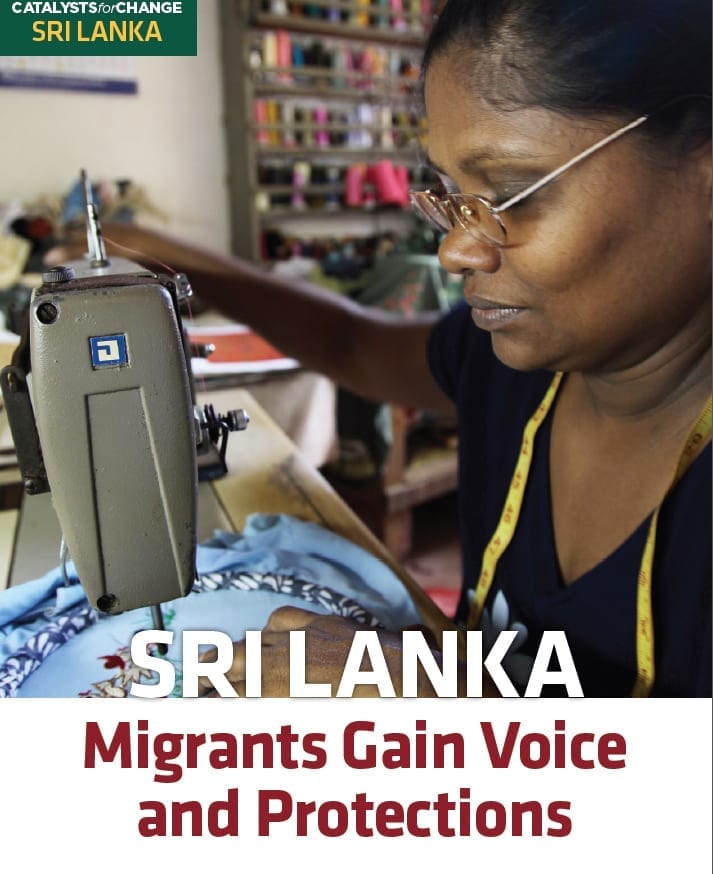
SRI LANKA: Migrants Gain Voice and Protections (2013)
The Migrant Services Center, a Solidarity Center partner, is assisting migrant workers and their families in Sri Lanka while championing structural change through legislative and governmental processes, and offers a model for other labor and worker rights organizations.
English (PDF)
Arabic (PDF)
French (PDF)
Spanish (PDF)
Sources
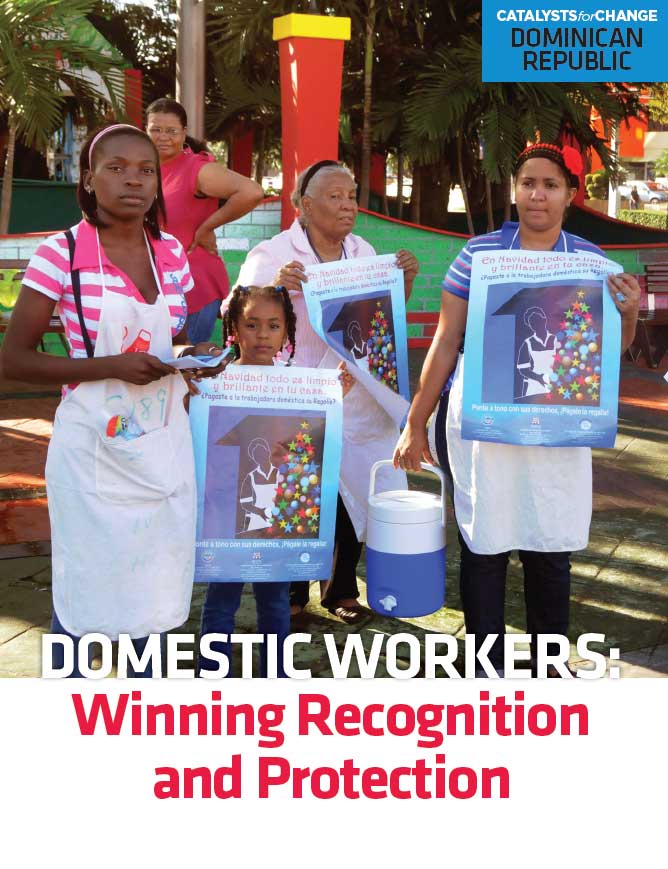
DOMESTIC WORKERS: Winning Recognition and Protection (2013)
Many domestic workers around the world are vulnerable to exploitation and not recognized by national labor laws. But in the Dominican Republic, domestic workers have campaigned to make gains over the last two decades—and a new Solidarity Center report shows how.
English (PDF)
Arabic (PDF)
French (PDF)
Spanish (PDF)
Sources

